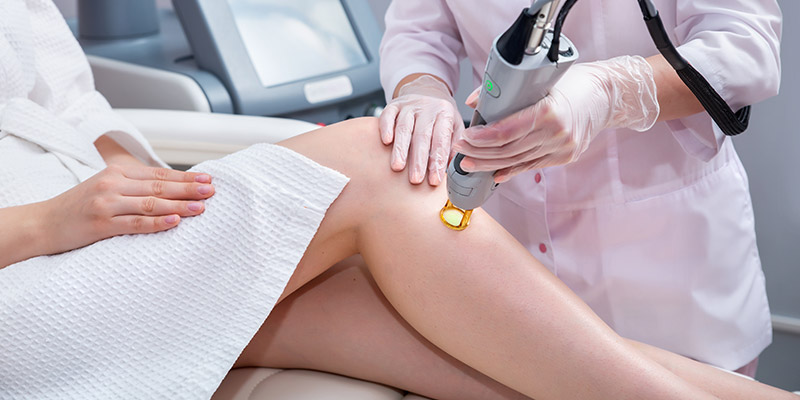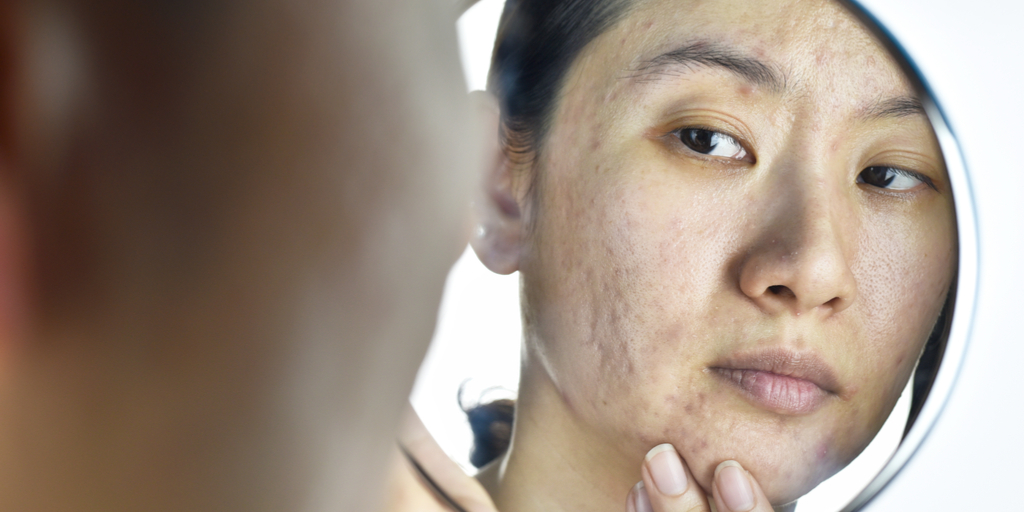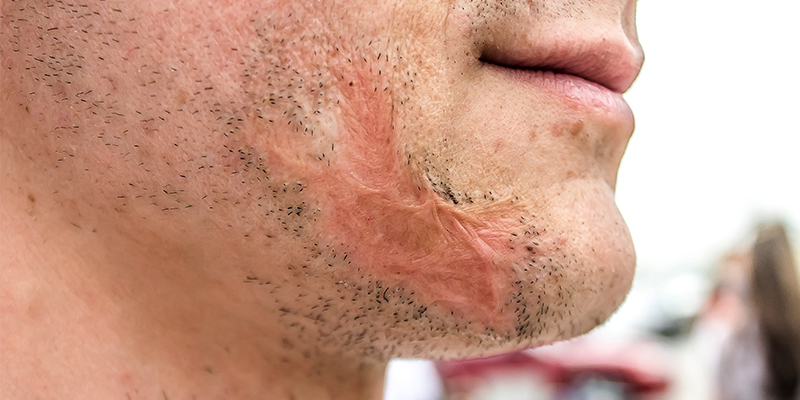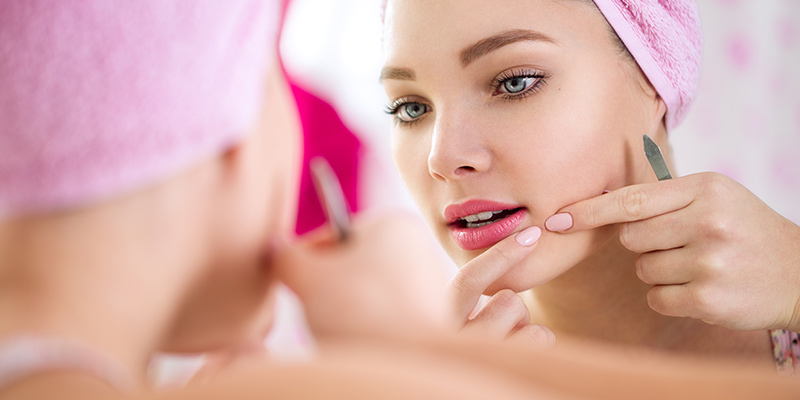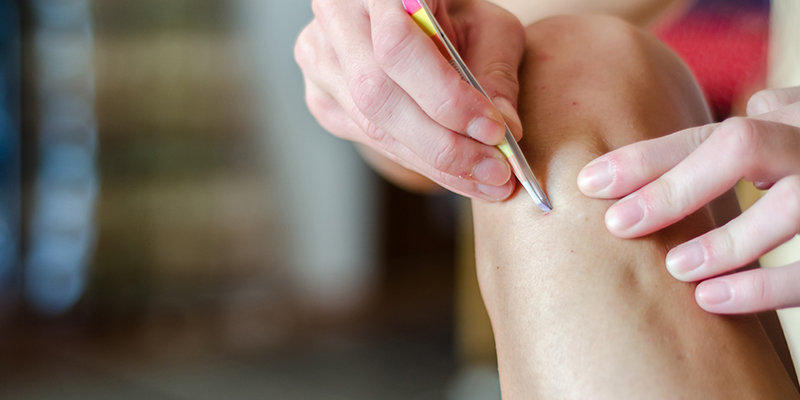Dry Skin – Causes, Treatments & Tips To Relieve From It
Our skin is the largest organ of our body and hence is more susceptible to various problems such as infections, inflammations, breakouts, etc. Being the outermost layer, it comes in contact with all the natural and unnatural elements. In this post, we would be discussing dry skin, what causes dry skin, how to get rid of dry skin, dry skin treatments, etc.
What Is Dry Skin?
Dry skin is basically when you notice that your skin is extremely dry and is prone to itching, cracking, and scaling. This is quite a common condition, and a lot of people have dry skin on face, hands, legs, etc. Some people tend to have dry skin naturally while some of them develop it due to various reasons. Even people with oily skin can sometimes have to deal with dry skin on certain body parts. Medically, extremely dry skin is known as dermatitis.
Must Read: How To Get Glowing Skin?
Dry Skin Types
Dry skin related to dermatitis can be further categorized into three different types –
- Contact Dermatitis: This type of dry skin is usually a result of your skin coming in contact with something which causes inflammation. When your skin comes in contact with some irritating agents such as harsh chemicals, bleach, etc., you tend to develop irritant contact dermatitis. Allergic contact dermatitis occurs when your skin comes in contact with elements or substances that you are allergic to.
- Seborrheic Dermatitis: This type of dry skin is usually common in infants and occurs when there is an excess production of oil on the skin. The excess oil leads to rashes and redness of the skin and develops mostly on the scalp.
- Atopic Dermatitis: The alternate name for atopic dermatitis is eczema, which is a skin condition which causes patches of dry skin and is scaly in nature.
Must Read: Common Skin Conditions Treated By Dermatologists
What Causes Dry Skin?
Before we get to how to get rid of dry skin, we need to understand the causes of dry skin. There is no one specific cause of dry skin. There are internal as well as external factors that can make your skin dry.
- External causes of dry skin –
- Low humidity
- Extreme cold temperatures
- Excessive washing of the skin with harsh soaps
- Over-usage of cleaning agents which include alcohol and sanitizers
- Usage of incorrect skin care products
- Internal causes of dry skin –
- Age
- Genes
- Overall health
- Medical history of the family
- Medications taken for other health conditions such as thyroid, high blood pressure, acne, allergies, high cholesterol, diabetes, etc.
Must Read: How To Remove Pimples From Dry Skin?
What Are Signs & Symptoms Of Dry Skin?
So how does one determine that the dry skin on the face or any other body part is not normal and needs to be treated? If you have dry skin and you have noticed the below signs and symptoms, then you need to start looking at ways to treat dry skin.
One of the main signs of dry skin is itching. The dry skin tends to make you feel itchy at all times. The constant itching leads to various symptoms such as redness of the skin, rough skin, dry and red patches, etc. The continuous itching and scratching of the skin leads to an “itch-scratch” cycle. The only time when there is some relief for your dry skin from all the itching and scratching is when you are asleep. Your skin can also turn thick and leathery due to the constant scratching and some people may also develop red bumps which can get infected if they break open due to scratches.
What Medical Conditions Cause Dry Skin?
It is not just the weather and temperature that causes dry skin. There are a couple of medical conditions also which can cause dry skin. Some of these are listed below –
- Hypothyroidism
- Eczema
- Diabetes
- Malnutrition caused due to deficiency of vitamin A
What Are Possible Complications Of Dry Skin?
One of the possible complications of dry skin is secondary bacterial infection. The severity of the infections may range from mild to extreme. The mild infections may get resolved on their own; however, the extreme infections will require the use of antibiotic medications. The incessant scratching can also lead to two different chronic conditions –
- Prurigo Nodule: In this skin condition, you will notice lumps which are itchy in nature.
- Lichen Simplex Chronicus (LSC): In this skin condition, the skin thickens considerably because of the scratching and also leads to scaling of the skin.
By now you would have determined whether you have dry skin or not. The next step is, of course, to look at ways to remove dry skin.
Dry Skin Treatments
When deciding on the best dry skin treatment, you need to remember that the treatment should specifically aim at stopping the itching, preventing loss of water from the skin, and keeping the skin hydrated at all times.
The ideal way to treat your dry skin is to use a daily moisturizer which contains emollient. An emollient is basically a substance that helps in stopping the evaporation of water from your skin. Regular application of a lubricant, over a period of time, can remove your dry skin. Replace your regular moisturizers with the below light lotions –
- Curel lotion
- Cetaphil lotion
- Lubriderm lotion
For severe cases of dry skin, you can opt for –
- Aquaphor
- Vaseline
To cure your streak of itchiness, use the below anti-itch oral medications –
- Benadryl (diphenhydramine)
- Atarax (hydroxyzine)
You can also use topical steroid creams, but be mindful of the fact that when applying these creams to remove dry skin from the face, groin areas, and underarms, you should use them after consulting a dermatologist.
Must Read: Best Dry Skin Tips For Winter Season
Dry Skin Tips
Apart from following the above dry skin treatment, using the below tips recommended by dermatologists will enlighten you on how to prevent dry skin from occurring and how to take care of dry skin.
- While taking a bath, ensure that you use warm to lukewarm water instead of hot water. Don’t spend more than 10 minutes in the shower and use a gentle cleanser. Pat dry your skin using a towel and apply moisturizer as soon as you dry off your skin.
- Anytime you wash your face or hands and dry them off, make sure you hydrate them immediately with the help of creams or lotions.
- Use skin care products that contain olive oil, jojoba oil, shea butter, etc. Other ingredients that help in soothing your dry skin include petrolatum, glycerine, lactic acid, urea, etc.
- To avoid dry and chapped lips, always keep a lip balm handy and use it as and when you feel your lips are dry.
- Your dry skin needs to retain back its natural oils, and this can be done by avoiding the usage of harsh soaps and beauty products which contain alcohol, alpha hydroxy acids (AHA), fragrance, etc.
- If your skin has to come in contact with water, chemicals, grease, etc., then ensure that you protect them with gloves. You should also wear them during winters, not just to keep yourself warm but also to protect your skin from becoming too dry due to the lack of moisture in the environment.
Must Read: How To Get Glowing Skin Naturally?
- The low humidity in the air can cause adverse effects on your skin. So try to use a humidifier at home, in order to retain the moisture in your surroundings.
- Try and avoid coming into direct contact with any source of heat.
- The type of clothes you wear also makes a difference, so it is better to wear soft, cotton clothes and also use laundry detergents which will keep your clothes soft. It is advisable to use laundry detergents which are marked as hypoallergenic.
We hope that by the end of this post you can easily determine if you have dry skin, and if it is a cause of concern, how to treat it and what preventive steps should be taken to ensure that your skin does not become dry again. Simple lifestyle changes and a little bit of extra attention will help you in maintaining a soft, supple, and hydrated skin on all parts of your body.





